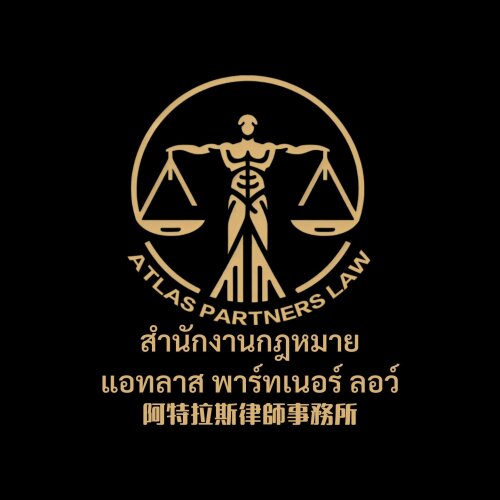ทนายความ สิทธิบัตร ที่ดีที่สุดใน เชียงใหม่
แบ่งปันความต้องการของคุณกับเรา รับการติดต่อจากสำนักงานกฎหมาย
ฟรี ใช้เวลา 2 นาที
รายชื่อทนายความที่ดีที่สุดใน เชียงใหม่, ประเทศไทย
1. เกี่ยวกับกฎหมายสิทธิบัตรในเชียงใหม่, ประเทศไทย
กฎหมายสิทธิบัตรของประเทศไทยกำหนดกรอบการคุ้มครองนวัตกรรมทางเทคโนโลยีเพื่อส่งเสริมการวิจัยและพัฒนาในประเทศ.
เชียงใหม่ปฏิบัติตามกฎหมายนี้ผ่านกรมทรัพย์สินทางปัญญา ซึ่งเป็นหน่วยงานกลางที่ดูแลการขอรับสิทธิบัตรและการบังคับใช้อำนาจสิทธิในทุกจังหวัดรวมถึงเชียงใหม่.
กระบวนการทั่วไปเริ่มจากการยื่นคำขอรับสิทธิบัตรกับกรมทรัพย์สินทางปัญญา ตามด้วยการตรวจสอบความใหม่ ความคิดสร้างสรรค์ และความสามารถในการใช้งานทางอุตสาหกรรม.
2. ทำไมคุณอาจต้องการทนายความ
ทนายความช่วยให้คุณเตรียมเอกสารที่ถูกต้องและตรงตามข้อกำหนดของกฎหมาย เพื่อเพิ่มโอกาสได้รับสิทธิบัตร.
ตัวอย่างเช่น นักวิจัยจากมหาวิทยาลัยเชียงใหม่ที่ต้องการยื่นคำขอร่วมกับทีมต่างชาติ ต้องการผู้เชี่ยวชาญด้านภาษากฎหมายและการทำสัญญาอนุญาตใช้สิทธิ.
อีกกรณีคือบริษัทในเชียงใหม่ที่ถูกกล่าวหาว่าละเมิดสิทธิบัตร ผู้เชี่ยวชาญจะช่วยคุณวิเคราะห์สถานการณ์ ตรวจสอบหลักฐาน และวางแผนแนวทางป้องกัน.
กรณีที่ต้องการขยายการคุ้มครองไปยังต่างประเทศก็จำเป็นต้องวางแผนการยื่นคำขอหลายประเทศและประสานงานกับทนายความที่มีประสบการณ์.
การเจรจาในสัญญาอนุญาต (license) หรือการทบทวนเงื่อนไขการใช้งานร่วมกับพันธมิตรในเชียงใหม่ ก็เป็นงานที่ทนายความมีบทบาทสำคัญเพื่อหลีกเลี่ยงข้อพิพาทภายหลัง.
3. ภาพรวมกฎหมายท้องถิ่น
พระราชบัญญัติบัตร พ.ศ. 2522 เป็นกฎหมายหลักที่กำหนดคุณสมบัติการจดทะเบียนและสิทธิประโยชน์ของผู้ถือสิทธิบัตรในประเทศไทย.
ระเบียบและประกาศของกรมทรัพย์สินทางปัญญา กำหนดรายละเอียดการยื่นคำขอ ขั้นตอนการตรวจสอบ และค่าธรรมเนียมที่เกี่ยวข้อง ซึ่งบังคับใช้ในเชียงใหม่เช่นเดียวกับจังหวัดอื่นๆ.
แนวทางการบังคับใช้ในเชียงใหม่ กระบวนการศาลในจังหวัดเชียงใหม่รับพิจารณาคดีที่เกี่ยวกับสิทธิบัตรภายใต้กรอบกฎหมายทรัพย์สินทางปัญญาของไทย พร้อมด้วยการอุทธรณ์ต่อศาลสูงที่กทม. หากจำเป็น.
“การยื่นคำขอรับสิทธิบัตรจะอยู่ภายใต้การตรวจพิจารณาเพื่อประเมินความใหม่และความสามารถในการใช้งานทางอุตสาหกรรม” จากกรมทรัพย์สินทางปัญญา
4. คำถามที่พบบ่อย
อะไรคือสิทธิบัตรและต้องมีคุณสมบัติอะไรบ้าง?
สิทธิบัตรคุ้มครองการคิดค้นที่ใหม่และสามารถใช้งานเชิงอุตสาหกรรมได้ คุณสมบัติหลักคือความใหม่ ความคิดสร้างสรรค์ และใช้งานอุตสาหกรรมได้
อย่างไรจึงจะยื่นขอสิทธิบัตรในเชียงใหม่และต้องเตรียมเอกสารอะไรบ้าง?
คุณต้องยื่นแบบฟอร์มคำขอพร้อมรายละเอียดการออกแบบ กระบวนการทางเทคนิค และสาระสำคัญของการใช้งาน จัดทำคำอธิบายการใช้งานให้ชัดเจน
เมื่อไหร่สิทธิบัตรมีอายุและสามารถต่ออายุได้หรือไม่?
สิทธิบัตรมีอํายุ 20 ปีนับจากวันที่ยื่นคำขอ โดยต้องชำระค่าธรรมเนียมต่ออายุทุกปีตามระเบียบของกรมทรัพย์สินทางปัญญา
ที่ไหนจะยื่นคำขอและใครที่ต้องติดต่อในเชียงใหม่?
ยื่นกับกรมทรัพย์สินทางปัญญา ผ่านสำนักงานภูมิภาคหรือสาขาในจังหวัดใกล้เคียง เชียงใหม่มีหน่วยงานที่รับคำขอโดยตรงและส่งต่อให้ส่วนกลาง
ทำไมต้องมีทนายความในการยื่นคำขอสิทธิบัตร?
เพื่อช่วยจัดเตรียมเอกสาร ปรับปรุงคำขอให้สอดคล้องกับข้อกำหนด และลดความเสี่ยงถูกปฏิเสธหรือถูกตีความผิด
สามารถยื่นขอสิทธิบัตรร่วมกับผู้อื่นได้ไหม?
ได้ หากมีผู้ยื่นร่วมและระบุบทบาทสิทธิในสัญญา ให้ชัดเจนในเอกสารคำขอและสัญญาอนุญาต
ค่าใช้จ่ายในการยื่นและรักษาสิทธิบัตรในเชียงใหม่เป็นเท่าไร?
ค่าใช้จ่ายรวมขึ้นกับประเภทสิทธิบัตรและค่าใช้จ่ายในการตรวจพิจารณา อาจแบ่งเป็นค่าธรรมเนียมคำขอ ค่าธรรมเนียมประจำปี และค่าบริการทนาย
ระยะเวลาการพิจารณาคำขอรับสิทธิบัตรโดยทั่วไปใช้เวลานานแค่ไหน?
โดยทั่วไปใช้เวลาประมาณ 2-4 ปีขึ้นอยู่กับความซับซ้อนของเทคโนโลยีและการตอบกลับข้อกังวลจาก DIP
คุณสมบัติของการคุ้มครองสิทธิบัตรมีอะไรบ้าง?
คุ้มครองเฉพาะส่วนที่เป็นการคิดค้นที่ใหม่และมีส่วนช่วยในการอุตสาหกรรม สมบัติต้องไม่ชัดเจนและไม่ง่ายต่อการคัดลอก
รูปแบบเอกสารคำขอและการแนบเอกสารต้องเป็นอย่างไร?
เอกสารควรเป็นภาษาไทยหรืออังกฤษตามข้อกำหนด DIP แนบแผนภาพ ภาพวาด และคำอธิบายทางเทคนิคให้ครบถ้วน
ความแตกต่างระหว่างสิทธิบัตรกับลิขสิทธิ์คืออะไร?
ลิขสิทธิ์คุ้มครองงานสร้างสรรค์ เช่น ซอฟต์แวร์ งานเขียน ไม่ใช่การคิดค้นทางเทคนิค ส่วนสิทธิบัตรคุ้มครองการคิดค้นที่มีนัยสำคัญเชิงวิศวกรรม
สามารถยกเลิกคำขอหรือถอนคำขอได้หรือไม่?
สามารถทำได้ก่อนที่คำขอจะมีการออกสิทธิบัตร โดยมีขั้นตอนที่ DIP กำหนด และอาจมีค่าใช้จ่ายที่เกี่ยวข้อง
5. ทรัพยากรเพิ่มเติม
- กรมทรัพย์สินทางปัญญา (IP Department) - สิทธิบัตร
- กระทรวงพาณิชย์ - ข้อมูลสิทธิบัตรและบริการที่เกี่ยวข้อง
- ราชกิจจานุเบกษา - ข้อมูลกฎหมายและประกาศที่เกี่ยวข้อง
6. ขั้นตอนถัดไป
- ประเมินความต้องการทางกฎหมายของคุณ ทำรายการเทคโนโลยี บุคคลที่เกี่ยวข้อง และวัตถุประสงค์การคุ้มครองในเชียงใหม่
- ค้นหาข้อมูลเบื้องต้น ตรวจสอบสถานะเทคโนโลยีของคุณจากแหล่ง DIP เพื่อดูว่าอาจผ่านเกณฑ์หรือไม่
- นัดปรึกษาทนายความด้านสิทธิบัตร เลือกผู้เชี่ยวชาญที่มีประสบการณ์ในพื้นที่เชียงใหม่และมีผลงานที่เกี่ยวข้อง
- เตรียมเอกสารและสัญญา รวบรวมข้อมูลทางเทคนิค แผนภาพ และข้อตกลงการใช้งานร่วมกับผู้ร่วมวิจัย
- ยื่นคำขอพร้อมทนายความ ยื่นต่อ DIP ผ่านทางหน่วยงานที่รับผิดชอบในเชียงใหม่และติดตามสถานะ
- ติดตามกระบวนการพิจารณา ตอบข้อกังวลจาก DIP ตามคำขอ และปรับปรุงเอกสารถ้าจำเป็น
- วางแผนต่ออายุและการคุ้มครองระหว่างประเทศ หากต้องการชูกลยุทธ์ระหว่างประเทศ ให้เตรียมแผนงานและเงินทุนล่วงหน้า
Lawzana ช่วยคุณค้นหาทนายความและสำนักงานกฎหมายที่ดีที่สุด ใน เชียงใหม่ ผ่านรายชื่อผู้เชี่ยวชาญด้านกฎหมายที่มีคุณสมบัติเหมาะสมที่คัดสรรและตรวจสอบล่วงหน้า แพลตฟอร์มของเรานำเสนอการจัดอันดับและโปรไฟล์โดยละเอียดของทนายความและสำนักงานกฎหมาย ช่วยให้คุณเปรียบเทียบตามสาขากฎหมาย รวมถึง สิทธิบัตร ประสบการณ์ และความคิดเห็นของลูกค้า
แต่ละโปรไฟล์ประกอบด้วยคำอธิบายเกี่ยวกับสาขากฎหมายของสำนักงาน รีวิวจากลูกค้า สมาชิกในทีมและหุ้นส่วน ปีที่ก่อตั้ง ภาษาที่พูด ที่ตั้งสำนักงาน ข้อมูลการติดต่อ การมีตัวตนบนโซเชียลมีเดีย และบทความหรือแหล่งข้อมูลที่เผยแพร่ สำนักงานส่วนใหญ่บนแพลตฟอร์มของเราพูดภาษาอังกฤษและมีประสบการณ์ทั้งในเรื่องกฎหมายท้องถิ่นและระหว่างประเทศ
ขอใบเสนอราคาจากสำนักงานกฎหมายชั้นนำ ใน เชียงใหม่, ประเทศไทย — รวดเร็ว ปลอดภัย และไม่ยุ่งยาก
ข้อจำกัดความรับผิดชอบ:
ข้อมูลที่ให้ไว้ในหน้านี้มีวัตถุประสงค์เพื่อเป็นข้อมูลทั่วไปเท่านั้นและไม่ถือเป็นคำแนะนำทางกฎหมาย แม้ว่าเราจะพยายามตรวจสอบความถูกต้องและความเกี่ยวข้องของเนื้อหา แต่ข้อมูลทางกฎหมายอาจเปลี่ยนแปลงได้ตามกาลเวลา และการตีความกฎหมายอาจแตกต่างกันไป คุณควรปรึกษาผู้เชี่ยวชาญด้านกฎหมายที่มีคุณสมบัติเหมาะสมเพื่อขอคำแนะนำเฉพาะสำหรับสถานการณ์ของคุณเสมอ
เราปฏิเสธความรับผิดทั้งหมดสำหรับการกระทำที่ทำหรือไม่ทำตามเนื้อหาในหน้านี้ หากคุณเชื่อว่าข้อมูลใดไม่ถูกต้องหรือล้าสมัย โปรด contact us และเราจะตรวจสอบและแก้ไขตามความเหมาะสม









